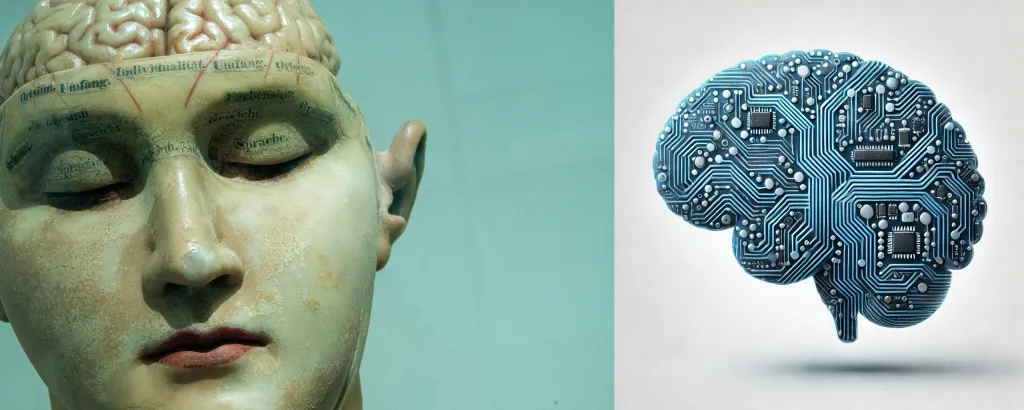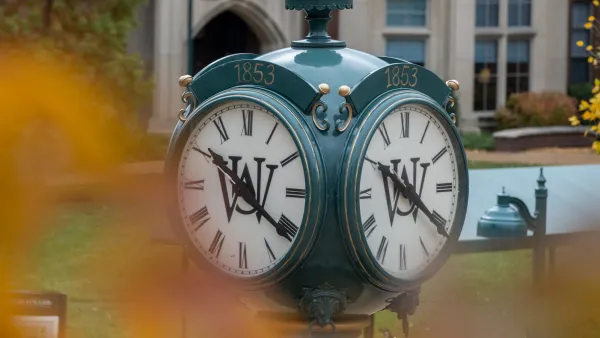Interview with Faculty Fellow Rebecca Copenhaver
Many of us imagine memory as a storehouse stocked with experiences, facts and feelings, ready for retrieval when needed. We imagine a lifetime of learnings stored in neat boxes in the brain, some more accessible than others, some getting misplaced along the way. This seeming truism — now so ingrained that it’s hard to conceive of alternative explanations — owes a debt to philosophers of the early modern period, says Professor of Philosophy Rebecca Copenhaver. She explores these origins and their present-day implications in her book-in-progress, “Modern Memory: A History of the Philosophy of Memory in 17th and 18th Europe.” Below, she offers us an early look at her project.
Briefly, what is your project about?
We all have ideas about what memory is, how it works and what it’s for. But these ideas come from somewhere. They have a history. One source of our ideas about memory comes from the beginnings of modern psychology. Psychology was one of several special sciences that emerged in the 19th century. But these special sciences were born from the rapid and revolutionary changes in 17th- and 18th-century Europe and Britain, when science was still called “natural philosophy.” My book project examines these early understandings of memory.

Why this stretch of time? What was going on that gave special prominence to the question of memory?
The time I’m looking at — the 17th and 18th centuries — is marked by a revolution in the way that people in Britain and Europe understood their world, the universe and their place in it. Francis Bacon and Isaac Newton introduced a special concern for method: for using a specific set of shared practices to investigate nature. One of the most important first steps in this method was collecting and ordering observations, samples and examples. This collecting and arranging could be done with text — in what were called commonplace books — or with objects, as with cabinets of curiosity and museums. But philosophers and scientists also noticed that there is an important mental equivalent to gathering the materials required to understand and predict nature: memory.
At the same time, Britain and Europe faced significant social, cultural, political and economic changes, from bloody religious wars to famine, from the rise of the merchant class to the beginning of the decline of aristocracy, from emerging colonial empires trading in enslaved people to increasing globalization. Philosophers and scientists lived and worked at the heart of these changes and had a hand in them. They did not see themselves as working in a value-neutral or value-free context: Their job was to understand nature specifically to improve human lives. And to do that, according to these early scientists, we must improve the thing we use to understand nature: namely, our minds.
What beliefs about memory did people in Europe and Britain previously hold?
Over the course of the period I’m focusing on, scientists and philosophers became interested in how individual human memory works. Initially, people disagreed about whether remembering happens in the brain or in the soul or in an interaction between the two. But memory becomes materialized — identified with an organ or process in the brain — early on, even when other mental processes, such as imagination, perception or reason, were not. Why?
I think it’s because, whatever else they may have disagreed about, scientists and philosophers agreed that memory involves some kind of retention or storage. This commitment encouraged them to think about memory in spatial terms, as having a location. Philosophers like John Locke explicitly rejected the notion that memory is a kind of storehouse, insisting that this is only a metaphor, but it’s hard to explain how we can recall something that we haven’t in some way — and some where — retained. As a result, memory is treated as a material process, or as explained by material processes, much earlier and much more thoroughly than other mental processes.

Why is important to evaluate this history? How do those early ideas shape the contemporary study and/or practice of philosophy, psychology and cognitive neuroscience?
I hope to highlight hidden assumptions in our current ordinary and scientific ideas about memory that originate from these early accounts.
We all work from assumptions that are so intuitive or obvious as to be almost invisible. But because they’re so familiar, we’re not good at scrutinizing them to the degree we should. One way to bring these assumptions into the light is to show that they have a history and that these ideas are inherited rather than simple truisms.
It doesn’t mean that our assumptions are wrong. But it does mean that they are optional and subject to standards of good evidence. The goal is to have a story that will be useful for everyone working on memory today, from neuroscientists and psychologists to cultural historians and philosophers.
We all work from assumptions that are so intuitive or obvious as to be almost invisible. But because they’re so familiar, we’re not good at scrutinizing them to the degree we should. One way to bring these assumptions into the light is to show that they have a history and that these ideas are inherited rather than simple truisms.



